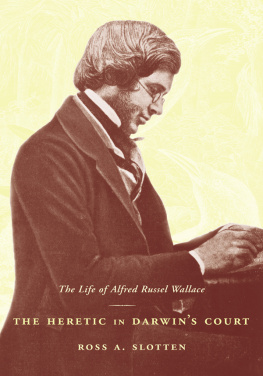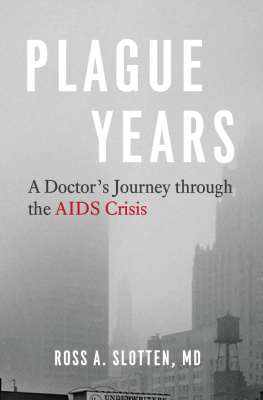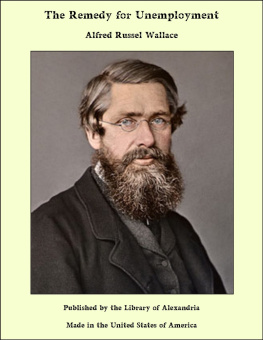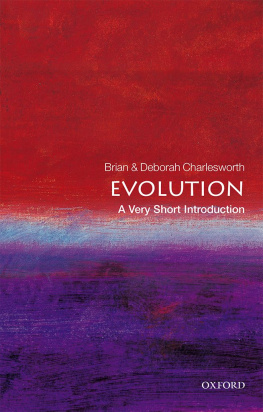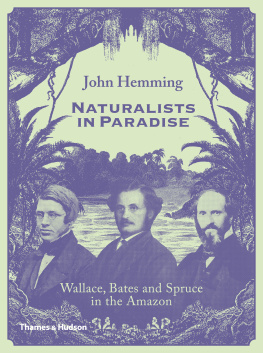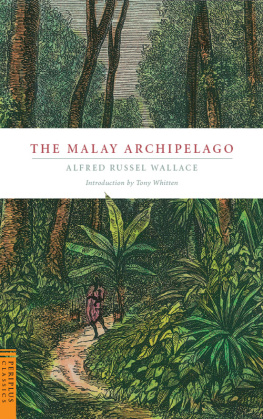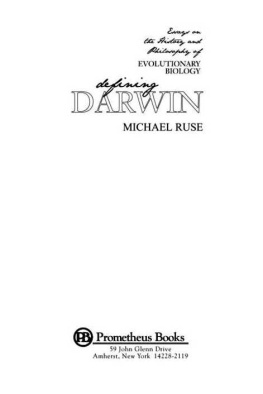Ross A. Slotten - The Heretic in Darwins Court: The Life of Alfred Russel Wallace
Here you can read online Ross A. Slotten - The Heretic in Darwins Court: The Life of Alfred Russel Wallace full text of the book (entire story) in english for free. Download pdf and epub, get meaning, cover and reviews about this ebook. year: 2004, publisher: Columbia University Press, genre: Science. Description of the work, (preface) as well as reviews are available. Best literature library LitArk.com created for fans of good reading and offers a wide selection of genres:
Romance novel
Science fiction
Adventure
Detective
Science
History
Home and family
Prose
Art
Politics
Computer
Non-fiction
Religion
Business
Children
Humor
Choose a favorite category and find really read worthwhile books. Enjoy immersion in the world of imagination, feel the emotions of the characters or learn something new for yourself, make an fascinating discovery.
- Book:The Heretic in Darwins Court: The Life of Alfred Russel Wallace
- Author:
- Publisher:Columbia University Press
- Genre:
- Year:2004
- Rating:5 / 5
- Favourites:Add to favourites
- Your mark:
The Heretic in Darwins Court: The Life of Alfred Russel Wallace: summary, description and annotation
We offer to read an annotation, description, summary or preface (depends on what the author of the book "The Heretic in Darwins Court: The Life of Alfred Russel Wallace" wrote himself). If you haven't found the necessary information about the book — write in the comments, we will try to find it.
During their lifetimes, Alfred Russel Wallace and Charles Darwin shared credit and fame for the independent and near-simultaneous discovery of natural selection. Together, the two men spearheaded one of the greatest intellectual revolutions in modern history, and their rivalry, usually amicable but occasionally acrimonious, forged modern evolutionary theory. Yet today, few people today know much about Wallace.
The Heretic in Darwins Court explores the controversial life and scientific contributions of Alfred Russel Wallace -- Victorian traveler, scientist, spiritualist, and co-discoverer with Charles Darwin of natural selection. After examining his early years, the biography turns to Wallaces twelve years of often harrowing travels in the western and eastern tropics, which place him in the pantheon of the greatest explorer-naturalists of the nineteenth century. Tracing step-by-step his discovery of natural selection -- a piece of scientific detective work as revolutionary in its implications as the discovery of the structure of DNA -- the book then follows the remaining fifty years of Wallaces eccentric and entertaining life. In addition to his divergence from Darwin on two fundamental issues -- sexual selection and the origin of the human mind -- he pursued topics that most scientific figures of his day conspicuously avoided, including spiritualism, phrenology, mesmerism, environmentalism, and life on Mars.
Although there may be disagreement about his conclusions, Wallaces intellectual investigations into the origins of life, consciousness, and the universe itself remain some of the most inspired scientific accomplishments in history. This authoritative biography casts new light on the life and work of Alfred Russel Wallace and the importance of his twenty-five-year relationship with Charles Darwin.
Ross A. Slotten: author's other books
Who wrote The Heretic in Darwins Court: The Life of Alfred Russel Wallace? Find out the surname, the name of the author of the book and a list of all author's works by series.

